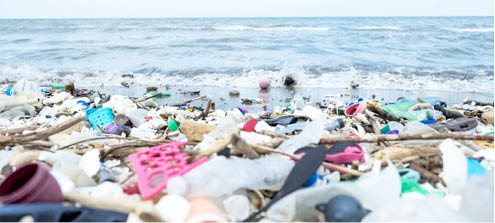Ocean pollution is being exacerbated by fun seekers who flock beaches and resorts around water bodies leaving in their trails a great litter of plastic, illicit drug particles and defecate openly, thereby endangering the lives of people and marine creatures.
Nigeria has a coastline of approximately 853 kilometres by the Atlantic Ocean with a good number of beaches and resorts along the way where people go for holidaying.
But ocean pollution is on the rise due to human activities and it has remained a significant environmental issue that poses a serious threat to the health and well-being of the planet.
Oceans account for 70 per cent of the surface of planet earth and play a pivotal role in the health of its ecosystem — including land-dwelling animals like man.
Senate raises alarm over erosion, ocean surge in Edo, Anambra, Ondo
UPDATED: We’ll shut down the economy from Oct. 3, says Labour
According to the National Oceanic and Atmospheric Administration (NOAA), billions of pounds of trash and other pollutants enter the oceans every year.
And a new study by PLOS ONE shows that the world’s oceans are polluted by roughly 171 trillion plastic particles that, if gathered, would weigh roughly 2.3 million tonnes.
The consequences of ocean pollution are far-reaching with most of it now tied to negative health outcomes in human health and the marine ecosystems.
Also, according to President of the Centre for Culture and Environment Promotion (CCEP), Dr Patrick Okpah, drug and substance abuse as well as open defecation on Nigerian beaches, around rivers, lakes, dams and waterfalls was endangering human lives and the marine habitats.
Okpah who spoke during a press briefing at National Environmental Standards and Regulation Enforcement Agency (NESREA) headquarters in Abuja on Tuesday said the centre was determined to change the story with its launch of Operation Clean Our Beaches (OCOB) campaign.
He said the OCOB project would clean up the beaches, plant trees, sensitise the people about the dangers of open defecation and polluting the marine ecosystems with drugs and substances as well as plastic pollution.
He added that the project which would positively impact seven of the 17 Sustainable Development Goals, “would change how we produce, consume and dispose of the plastic we use and help maintain sanity and order in our environment.”
He said the project which has the theme: Beat Plastic Pollution, An Ecosystem Restoration Initiative was pioneered at Tarkwa Bay/LightHouse Beach, Lagos, but would cover other places like the Tiga Dam in Kano as well as Assop Falls in Plateau, among others.
According to the Texas Disposal Systems, “Sea animals are frequent victims of ocean pollution. Oil spills, for instance, will ensnare and suffocate marine animals by permeating their gills. When the oil gets into seabird feathers, they may not be able to fly or feed their young. Animals that aren’t killed by crude oil may suffer from cancer, behavioural changes and become unable to reproduce.
“Marine animals also mistake small plastic debris for food or become entangled in or strangled by plastic bags and discarded fishing nets. Animals most vulnerable to harm from plastic debris in the ocean include dolphins, fish, sharks, turtles, seabirds and crabs.
Daily Trust also learnt that excess debris in the ocean slowly degrades over many years; it uses oxygen to do so, resulting in less oxygen in the ocean.
“Low levels of oxygen in the ocean lead to the death of ocean animals such as penguins, dolphins, whales and sharks.
“Excess nitrogen and phosphorus in seawater also cause oxygen depletion. When a great deal of oxygen depletion occurs in an area of the ocean, it can become a dead zone (see below) where very little marine life can survive,” the Texas Disposal System added.
But of utmost concern is the fact that pollutants in the ocean make their way back to humans. “Small organisms ingest toxins and are eaten by larger predators, many of which are seafood that we eventually eat. When the toxins in contaminated animals get deposited in human tissue, it can lead to long-term health conditions, cancer and birth defects.
For example, phytoplankton will absorb methylmercury (bacteria-converted mercury carried down to the ocean’s surface). This makes its way up the food chain when zooplankton eat the phytoplankton, then small fish eat the zooplankton, then bigger fish eat the smaller fish. By the time you reach a fish the size of a swordfish, they can contain a very high mercury load (in fact, swordfish contain one of the highest mercury loads),” it said.
The Chief Executive Officer of NESREA, Prof. Jauro Aliyu, said it was a very important step taken by the centre to ensure environmental sustainability.
He said the beaches were a valuable asset to the country but when they are not regulated they become a conducive environment for negative vices.
He said NESREA was open to partnerships that would improve the Nigerian environment and the lives of the people.

 Join Daily Trust WhatsApp Community For Quick Access To News and Happenings Around You.
Join Daily Trust WhatsApp Community For Quick Access To News and Happenings Around You.